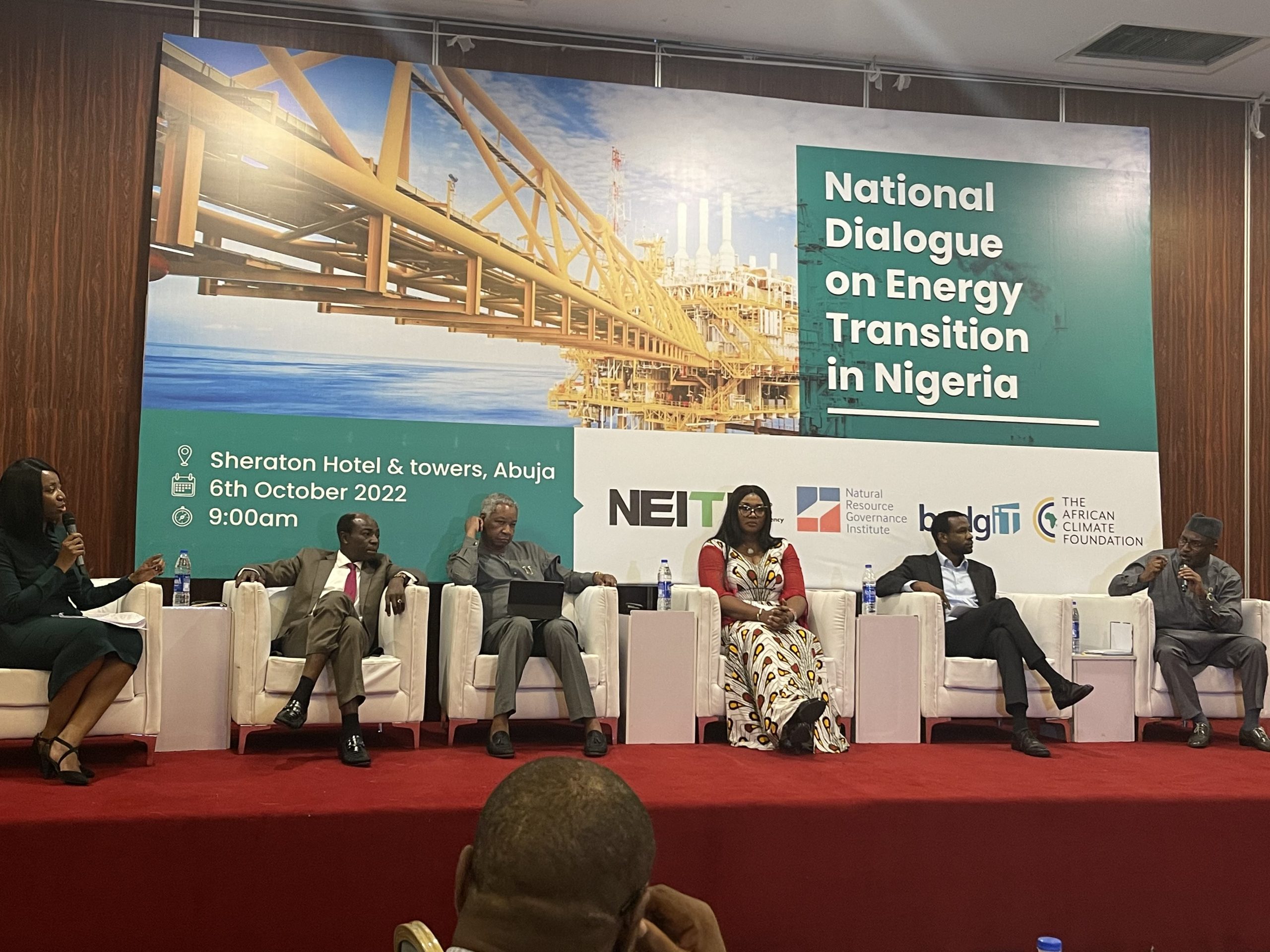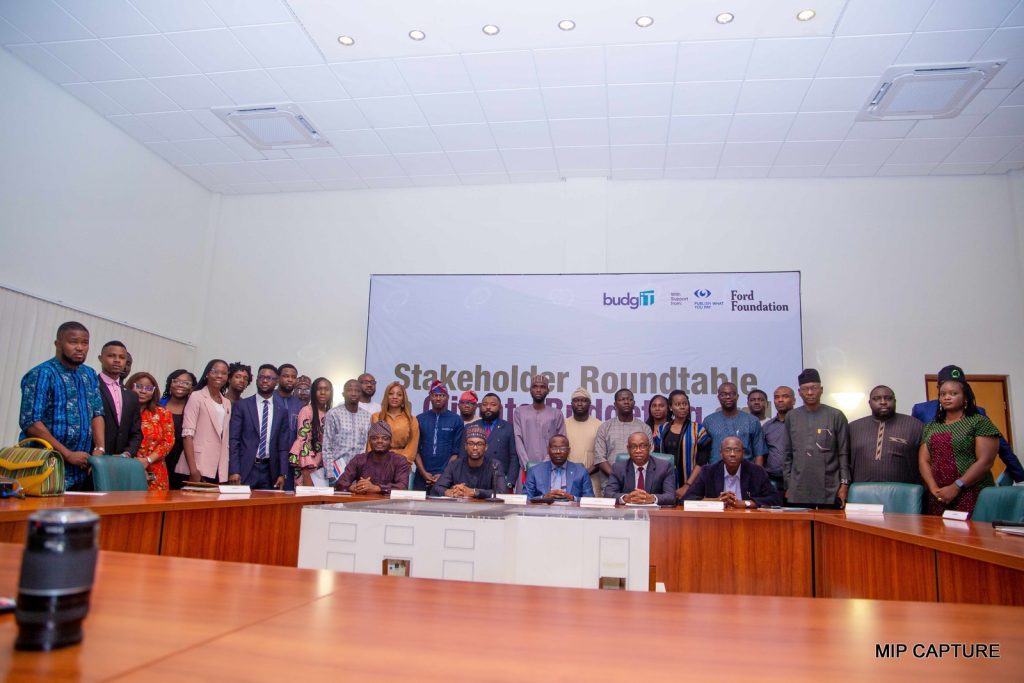Nigeria should not make a hasty energy transition decision without a thorough analysis of our comparative advantage. – Dr. Orji Ogbonnaya Orji, NEITI.
Nigeria has joined the league of Nations which has embraced energy transition. The launch of its Energy Transition Plan on Wednesday, August 24, 2022—made it the first African nation to do so. The energy transition plan, among other things, will lift 100 million people out of poverty and reduce Nigeria’s carbon footprint. It is also designed to drive economic growth and manage the expected long-term job loss in the oil sector due to reduced global fossil-fuel demand.
With the likely impact of global responses to reduce greenhouse gas emissions, it is safe to say that this is a step in the right direction. However, this will also have dire implications for oil-dependent economies, especially Nigeria, whose major revenue comes from fossil fuels. How can the transition happen with minimal impact on Nigeria and Nigerians?
Nigeria’s Energy Transition Dialogue
On Thursday, October 6, 2022, BudgIT, in collaboration with the Natural Resource Governance Institute, NRGI and the Nigeria Extractive Industries Transparency Initiative, NEITI, hosted a 1-day national dialogue on energy transition in Abuja to stimulate sustainable national discourse on energy transition and set the stage for this to be one of the key agendas for election 2023. The dialogue provided a multi-stakeholder platform for state and non-state actors to discuss, debate, and make meaningful contributions to Nigeria’s ongoing discourse on energy transition; increased public awareness of the challenges, risks, and opportunities associated with the energy transition, including its implications on the economy and livelihoods, and feed into the government’s energy transition process to ensure that it is inclusive, equitable, ambitious, and responsive to the reality and context of the Nigerian people.
The national dialogue featured a presentation and panel discussion on “Energy Transition: The Way Forward for Nigeria‘ led by Ms. Tengi George-Ikoli, Senior Officer, Natural Resource Governance Institute, with high-level contributions from Mr. Lai Yahaya, Senior Liaison Officer, Nigeria Energy Transition Office, Dr. Nuhu Habib, Executive Commissioner, Development and Production, Nigerian Upstream Petroleum Regulatory Commission, Mr. Osten Olorunsola, Adviser to the Nigeria Extractives Industries Transparency Initiative, Ms. Victoria Ohaeri, Executive Director, Spaces for Change; and Mr. Zira Qhaghe, Nigeria Focal Person, African Climate Foundation.
While giving his remarks, Dr. Orji Ogbonnaya, the Executive Secretary/Chief Executive Officer of Nigeria Extractive Industries Transparency Initiative, NEITI, reiterated the need for Nigeria to carefully examine the positive impact of the transition before proceeding with the plan.
“Nigeria should not rush into a hasty energy transition decision without a thorough analysis of its comparative advantages. Inputs from the dialogue would feed into the national energy transition roadmap, which is currently being developed and set to be unveiled before the end of the year”.
In his welcome address, BudgIT’s Country Director, Gabriel Okeowo, stated that by implementing the Energy Transition Plan, Nigeria would lead Africa and other continents in improving and foreseeing the impending risks posed by fossil fuels.
During the national dialogue, the West African Regional Manager of the Natural Resource Governance Institute, Nafi Chinery, spoke on the importance of decentralising and localising Nigeria’s energy plan to enable citizens, businesses, the private sector, and state actors to drive its implementation.
‘Across the world, there appears to be a marginalisation of civil society, broad citizenry, and demand side accountability actors in the discussions around energy transition and, importantly, just transition. The objective of lifting 100million people out of poverty by 2060, according to Nigeria’s plan, will not be achieved if an inclusive approach is not taken by leadership, and ownership of the plan is not decentralised and localised for citizens, businesses, the private sector, and state actors to drive its implementation.’ She said.
There is a need for citizens to understand the government’s plan for the energy transition process and the role of other variables, including gas. Ultimately, we envisage an energy transition agenda for Africa broadly and Nigeria more narrowly, that delivers value, ecological protection addresses the issues of energy security and poverty and supports people-centred economic growth and development.
In his goodwill message, Mr. Umar Ajiya, Chief Financial Officer, of Nigerian National Petroleum Company Limited, stated that Nigeria’s transition must be presented in a transparent and accountable manner to ensure fair and equitable sharing of risks and rewards. He noted that, as a result, NNPC Limited intends to maximize the use of gas to add value and robust input through job creation and overall poverty and insecurity reduction in the country.
The dialogue also featured breakout sessions on ‘Securing a Just and Inclusive Energy Transition for Nigeria’, ‘The Role of Gas in Nigeria’s Energy Transition’, ‘Funding and Financing the Transition to Scale up Clean and Reliable Energy’ and ‘Diversifying Nigeria’s Economy for Sustainable Development.
What does the transition mean for marginalized groups?
During the breakout session, Mr. Zira Qhaghe, Nigeria’s Focal Person, African Climate Foundation, while sharing recommendations on ‘How Nigeria can secure a just and inclusive energy transition‘, stated that the nation must approach the energy transition journey devoid of errors of the fossil fuel era. Thus, host communities and environmental concerns must be taken seriously and factored into the energy transition plan and implementation. To this end, broader stakeholder engagement should be mainstreamed into the Nigerian energy transition plan/agenda.
How feasible is the fiscal strategy?
From the ‘Funding and Financing the Transition to Scale up Clean and Reliable Energy‘ session, the fiscal source of USD 1.9 trillion captured in the transition plan was viewed as problematic and could constitute an obstacle to its implementation. The recommendation from the session was that the federal government should be explicit on the delivery mechanism of the energy transition, stating clearly how the green economy will translate to job creation for Nigerians. It also determined that of the many financial instruments to be negotiated, these options should align with Nigeria’s long-term development goals to ensure they benefit future generations.
Can gas bridge the energy access, poverty and revenue gaps?
The breakout session on ‘The Role of Gas in Nigeria’s Energy Transition‘ highlighted the lack of adequate infrastructure and connectivity between Eastern and Western Nigeria as a significant threat or barrier to implementing the energy transition plan. Therefore, it was recommended that the energy transition plan must be driven by a roadmap to define the modalities for funding and identify the risks and opportunities.
How can Nigeria reduce its dependence on oil and leverage the opportunities presented by the transition?
The ‘Diversifying Nigeria’s Economy for Sustainable Development‘ session saw the need for greater attention to be paid to the solid mineral sector, as it holds potential for the Nigeria Energy Transition plan following the growing demand for strategic energy minerals, such as lithium, cobalt, etc., in Nigeria. Nigeria must also seek to resolve the pre-existing environmental legacy issues to forestall the similar restiveness experienced during oil booms. As Nigeria plans for its future with less dependence on oil as it diversifies, the Energy Transition Plan should be translated into an implementable action plan that is aligned with development plans to ensure the sustainable development of the Nigerian economy.
While the energy transition plan is not free of loopholes, the implementation process provides an opportunity for those loopholes to be closed. The communique resolutions from the dialogue provide that opportunity. Still, Nigeria has taken a laudable first step and stakeholders should be optimistic and embrace the transition as an opportunity and less of a risk factor to the nation’s economy. This goes without saying that mainstreaming the demand for transparency, accountability, and stakeholder engagement into the Nigeria energy transition plan and agenda is very crucial.
Follow us on all social media platforms @budgitng to stay abreast of our activities.



